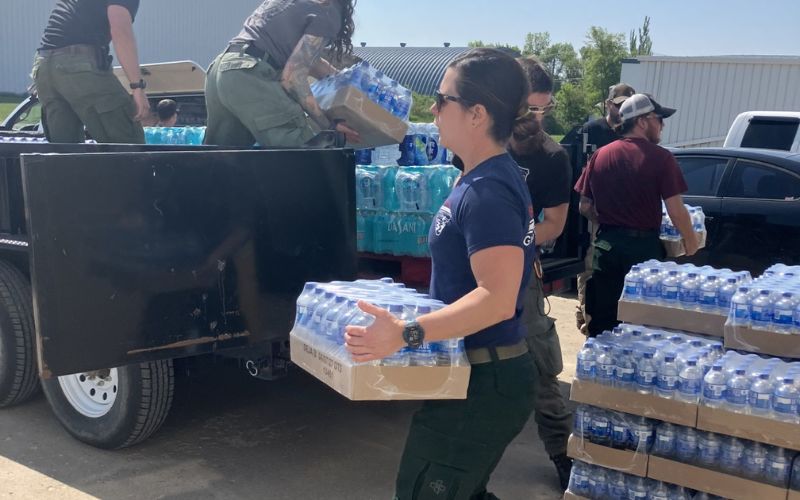
- Details
- By Elyse Wild
Manganese is a naturally occurring mineral. In low doses, it is an essential nutrient, but exposure to high levels can result in serious neurological health concerns, such as low IQ, memory difficulties, speech impairment, and lack of coordination, according to the Water Quality Association. Children, the elderly, and individuals with liver disease are most at risk.
Following the discovery, tribal leadership quickly assembled an incident command team comprising representatives from various tribal departments to coordinate the response and develop a comprehensive plan to address the water crisis.
Starting May 28, 2025, the tribe began distributing bottled water to residents in need. The distribution system allocates one case of water per two household members, with residents required to complete a request form that will be made available through tribal channels.
To ensure equitable access during the initial phase, households are asked to limit their first request to one case until the distribution system is fully operational.
The tribal council has prioritized water distribution for the most vulnerable community members, including families with infants who depend on formula, elderly residents, and individuals with compromised immune systems or other medical conditions requiring safe water access.
Beyond immediate distribution efforts, the Spirit Lake Tribal Council is pursuing multiple avenues for assistance, including outreach to state and federal agencies and collaboration with neighboring tribal communities to secure additional resources.
The tribe is exploring the installation of water filtration systems at its four district recreation centers. The Mission district recreation center already has a functioning filtration system in place. The Office of Environmental Health will conduct water testing at each recreation center to verify the safety of filtered water.
The Water Resources Department is working on implementing a temporary solution to address the elevated manganese levels. Officials anticipate that a temporary water filtration system will arrive and be installed within approximately 14 days.
The water distribution program is scheduled to continue from May 28 through June 11, 2025, when the temporary filtration system is expected to be operational.
To manage the increased plastic waste from bottled water distribution, the Waste Management Department have placed place designated dumpsters in each district specifically for plastic waste disposal. Residents are urged to separate plastic waste and use these designated containers to maintain environmental cleanliness.
Chairwoman Lonna Jackson-Street stressed the tribal council's commitment to community welfare. "The health and well-being of our community is our highest priority, and we are committed to restoring access to safe water services as effectively as possible," Jackson-Street said in a press release.
More Stories Like This
New Mexico Will Investigate Forced Sterilization of Native American WomenUSDA Expands Aid for Lost Farming Revenue Due to 2025 Policies
Two Feathers Native American Family Services Wins 2026 Irvine Leadership Award
Bill Would Give Federal Marshals Authority to Help Tribes Find Missing Children
Indian Health Service to Phase Out Mercury-Containing Dental Amalgam by 2027


